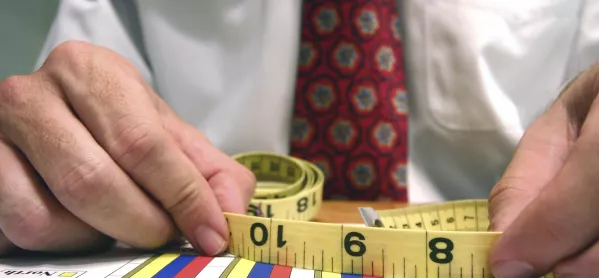On the face of it, it should be good news that England’s primary school pupils have achieved top 10 status in the latest worldwide literacy rankings.
They are joint-eighth in the latest Pirls (Progress in International Literacy Reading Skills). Northern Ireland is in sixth place - hot on the heels of the highest flying western country, Finland.
You could argue that it is a vindication of government policy - Sats tests, phonics and a curriculum focussing upon the three Rs.
On the other hand, you could argue that Northern Ireland’s high ranking is a testament to the demands that a selective secondary school system places on primary school performance.
England’s eighth-place ranking compares with 11th place in the test five years ago, when it was last sat.
Governments hang on every word that comes out of tests like Pirls, Timms (a maths test) and the Pisa rankings (denoting literacy and numeracy skills).
Perhaps they should not.
Pirls problems
I attended a conference in Washington last year when academics were furious that so much weight was given to the results of these tests. They singled out the Pisa ranking for particular opprobrium, arguing that China - which topped the rankings - had only entered its best-performing schools in Shanghai for the tests.
Similarly, you could argue the Pirls test results are flawed since the pupils in Finland who sat them - and took their country to near the top of the rankings - were on average almost a year older than their counterparts in France and Italy, lower performing countries.
Pirls itself argues that, if the same methodology for assessing the results had been used for the tests five years ago, England would have been in joint-sixth place not 11th. So, has England improved its performance or not?
That, then, is an argument for not trying to read too much into the results. On the other hand, you could argue there is nothing much wrong with English reading standards, not now nor five years ago.
Snow school today
Wusses! That’s the general perception - certainly in the media and even amongst some members of the public, such as parents forced to give up a day’s work - of schools which close as a result of a snowfall.
Obviously, the precipitations earlier this week were a little heavier than usual - but was it necessary to close hundreds of schools and, in some cases such as Birmingham, a whole authority?
Well, headteachers have to consider wider implications than just whether the child will be in a safe environment. There are other concerns: will there be enough staff on duty? Will the child be able to travel to and from school safely? And what is the weather forecast for later on in the day?
Also, local authorities may consider it easier to deliver a blanket closure ban rather than assess the situation school by school.
The Department for Education indicates that schools should take all steps to try and stay open: the right tone to adopt in the circumstances.
Having said that, I fear we live in a litigious society and the prospect of little Johnnie’s parents suing the school for broken bones may be uppermost in some headteachers’ minds.
Accidents will happen, even on the most pleasant of summer days.
Richard Garner was education editor of The Independent for 12 years, and previously news editor of Tes. He has been writing about education for more than three decades
To read more columns by Richard, view his back catalogue
Want to keep up with the latest education news and opinion? Follow Tes on Twitter and Instagram, and like Tes on Facebook




